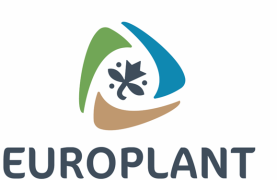Abstract
Potato (Solanum tuberosum) is a major staple food crop susceptible to numerous pathogens and pests. Utilising biotic elicitors offers a promising integrative approach for crop management, potentially reducing losses and chemical treatments. One such elicitor, an inactive suspension of Xanthomonas axonopodis (XTH), has previously been shown to enhance potato resistance against pathogens, like the bacterium causing blackleg disease. However, the underlying mechanism of this resistance remains unclear. Thus, this study investigated the effect of XTH on the defence metabolism in potato plants and compared it to the response elicited by exogenous salicylic acid (SA), a well-known defence-signalling molecule. We analysed the expression of marker genes for defence response pathways, including JA/ET-responsive genes (StPin2, StERF1, and StJAZ1/TIFY10A-like) and SA-responsive genes (StPR-1b, StPR-2, and StChtA). Potato plants were treated with either SA and XTH, and both treated and systemic leaves were analysed. XTH upregulated all analysed genes locally and systemically within the first 24 h, except for StChtA. The XTH-mediated upregulation of StPAL and Pin2 genes suggests this elicitor might trigger responses via the jasmonic acid pathway. Exogenous application of SA induced the systemic expression of StPR, StChtA, StJAZ1/TIFY10A-like, and StERF in potato plants. Our results indicate that XTH modulates the expression of defence-related genes in potato plants by simultaneously activating both the salicylic acid and jasmonic acid signalling pathways. This dual activation suggests that XTH could be a valuable resource for crop management in potato cultivation, potentially reducing the need for chemical pesticides.















